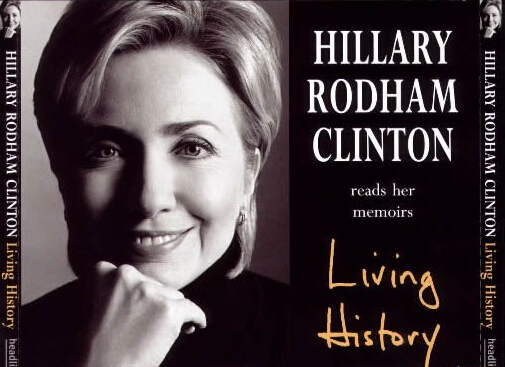David Kendall had alerted the TV networks that Bill would briefly address the nation at to P.M. eastern standard time. Some of Bill's most trusted advisers gathered in the Solarium to help him work on his statement. David Kendall was there, as was Chelsea, who was trying to make sense of what was happening. I stayed away, at first. I didn't much want to help Bill compose his public statement on a matter that violated my sense of decency and privacy. Finally, though, out of habit, maybe curiosity, perhaps love, I went upstairs. When I walked into the room at about 8 P.M., someone quickly switched off the sound on the television set. They knew I couldn't stand to hear whatever was being said. When I asked how things were going, it was clear that Bill still hadn't decided what to say.
戴維·肯德爾已經(jīng)通知電視網(wǎng),比爾將在美國東部時間當(dāng)晚十點(diǎn),通過電視向全國民眾發(fā)表簡短演說。事前,比爾最信賴的幾位幕僚群聚日光浴室內(nèi)幫他研擬講稿。戴維·肯德爾在那,切爾西也在那里,希望能有所幫助。起初我打算撒手不管,不想幫他草擬那份將提及令我難堪的隱私的公開聲明。但不知是出于習(xí)慣、好奇心或是愛意,我終究還是走上樓去。當(dāng)我在晚間八點(diǎn)走進(jìn)日光浴室時,有人立即關(guān)掉了電視的聲音,他們知道我無法忍受媒體所說的東西。當(dāng)我問起講稿進(jìn)度時,顯然當(dāng)時比爾還拿不定主意要說什么。

He wanted people to know that he deeply regretted misleading his family, his friends and his country. He also wanted them to know that he did not believe he had lied during the Jones deposition because the questions had been so clumsy―but that sounded like legalistic hairsplitting. He had made a terrible mistake, then tried to keep it a secret, and he needed to apologize. At the same time, he didn't think that, the President of the United States could afford to appear on television looking weak.
比爾想讓美國民眾了解,他對自己先前隱瞞事實(shí)誤導(dǎo)家人、朋友及國家的做法深感遺憾。他也期望說明,他并不認(rèn)為自己在為瓊斯案提供證詞時說了謊,因?yàn)樘釂栒叩膯栴}實(shí)在含混不清,但他的話聽上去像認(rèn)為是法律的吹毛求疵。他犯了嚴(yán)重的過錯還意圖隱瞞,當(dāng)然應(yīng)該道歉。然而,兩難的是,比爾認(rèn)為,美國總統(tǒng)絕不可在電視上示弱。
As the hour for his statement approached, everyone was putting in his or her two cents, and this was not helping Bill. He wanted to use this opportunity to point out the unfairness and excesses of Starr's investigation, but there was a vigorous argument over whether he should take a shot at the independent counsel. Even though I was furious with him, I could see how upset he was, and it was awful to watch. So I finally said, "Well, Bill, this is your speech. You're the one who got yourself into this mess, and only you can decide what to say about it." Then Chelsea and I left the room.
比爾發(fā)表聲明的時刻漸漸逼近,大家七嘴八舌地出主意,可對比爾都沒多少幫助。他想利用這個機(jī)會指出斯塔爾調(diào)查中不公平和過分之處,可是眾人對于他該不該指責(zé)獨(dú)立檢察官意見不一,吵個不停。雖然我對他余怒未息,卻也不忍心看他如此慌亂。我終于開口:“好了,比爾,這是你的演說,把你拖進(jìn)這場麻煩的是你自己,也只有你才能決定該有什么說法。”接著,切爾西和我走出房間。
Eventually everyone else left Bill alone, and he finished writing the statement by himself. Immediately after his speech, Bill was criticized for not apologizing enough (or, rather, for appearing less than sincere in his apology because he also criticized Starr). I was still too upset to have an opinion.
最終大家都離開了房間,留下比爾一個人完成他的講稿。比爾發(fā)表談話之后,有人立刻批評他道歉的程度不夠(或是說他道歉的態(tài)度不夠誠懇,因?yàn)樗瑫r也批評了斯塔爾)。我的心情還很亂,不想發(fā)表意見。
Over the next days reactions from most Americans indicated that they considered a consensual relationship between adults a private matter, and they did not believe that it affected a person's ability to do a good job, Bill's standing in public opinion polls remained high. His standing with me had hit rock bottom.
不過接下來幾天美國民眾的反應(yīng)則顯示,大多數(shù)人覺得成年人之間兩情相悅是私人事情,也不相信這種事會影響一個人的做事能力,比爾的民意調(diào)查聲望居高不下,但他在我心目中的地位則跌到谷底。











